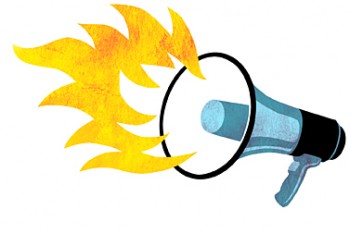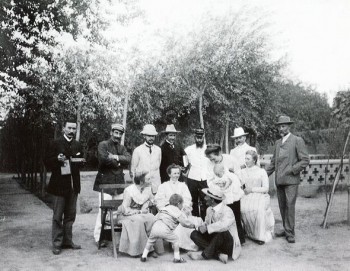Search results for "witesman"
Pop song lyrics
A ‘short special’: a previously unpublished text (written in the 1960s) from Luonnonkierto (‘Nature’s circle’, Siltala, 2012). Introduction by Jarmo Papinniemi
The pop song is a wide, mysterious world. It is like an ocean. Like a snow-covered desert. Like a rose garden. Like a perfume factory. The pop song is as mysterious as spring. The pop song is as whimsical as the restroom of the city hotel in Samarkand. The pop song is as coarse as your father’s eldest brother. Pop songs snag everyone, especially the young and the old. The best pop songs are foreign, because the words make no sense. Pop stars rise into the sky. Lovely young women step into the arena smelling of perfume and sing about love or tell playful stories about animals or nursery rooms. And then on the other end of life the stars go out and start to look for a place to be buried. But before dying they drone on in their gruff voices about the temptations of the big city, and love, which in a certain sense tortured and wore out those concerned…
Up here in Finland, we write and set pop songs to music as well. But I have to say that they aren’t any good. We also translate and water down a lot of foreign hits as well. Well, of course they’re all popular and people hum them in parishes in the city and in the country, but from a critical perspective they stink. Usually the weak point of a pop song is its execrable lyrics. More…
What have brains got to do with it?
17 October 2013 | Columns, Tales of a journalist
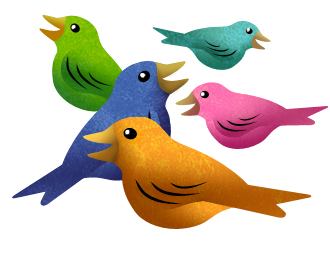
Illustration: Joonas Väänänen
Pondering his changing profession once again, columnist and media critic Jyrki Lehtola feels compelled to present a brief history of the media
Not long ago a certain media company invited me to participate in a panel on brainprints.
I didn’t know what they were talking about, so I agreed. At most I thought it was about the engram left in our collective psyche that yes, we used to have this sort of print media thing that told us what the world was like.
And then we didn’t – look at this picture of print media on my iPad, kids, isn’t it cute?
That wasn’t what it was about at all. Brainprint means all the ways the media can influence us as consumers. In other words, this is one more conversation the media has with itself to convince itself that it has a role to play.
There we sat around a long table once again talking about whether the media is a mirror or a window when maybe we should have been talking about the pile of glass on the ground and whether someone shouldn’t clean it up before someone hurts themselves. More…
Boys Own, Girls Own? –
Gender, sex and identity
30 December 2008 | Essays, Non-fiction
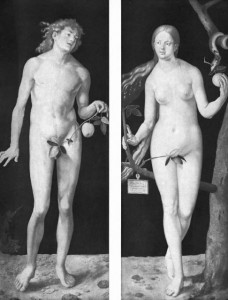
Knowing good and evil: Adam and Eve (Albrecht Dürer, 1507)
In Finnish fiction of the present decade, both in poetry and in prose, there seems to be at least one principle that cuts across all genres: an overt expression of gender, writes the critic Mervi Kantokorpi in her essay
Relationships and family have always been central concerns of literature; questions about gender and individual identity have received a new emphasis in Finnish literature from one season to the next. The gender roles represented in contemporary literature appear to become ever more stereotypical. The question is no longer only of the author consciously setting his or her gender up as the starting point for expression, as has already long been the case with modern literature written by women. More…
The house the seniors built
27 November 2009 | Reviews
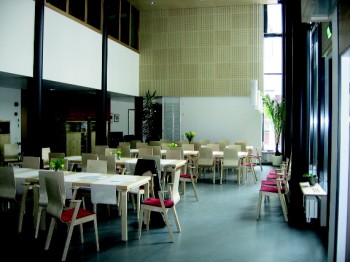
Yours and mine: the common dining room at Sprint
Maija Dahlström – Sirkka Minkkinen
Loppukiri. Vaihtoehtoista asumista seniori-iässä
[Sprint: alternative living for seniors]
Helsinki: WSOY, 2009. 232 p., ill.
ISBN 978-9510-4322-9
€ 32.90, paperback
‘Your elderly mother just told you she fell in the bathroom last night at 4 a.m. Now what?’ advertises the Visiting Nurse Service of New York in the New York Times. Aging people and their desire to live in their own homes is a pressing question around the world. People feel concern over their own living arrangements and those of their loved ones. Living arrangements somewhere between being in one’s own home or in a care facility are sought by many, but there are few of these options available. More…
We are the champions
25 March 2011 | Prose
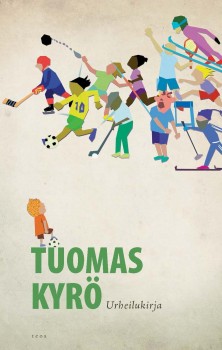 Heroes are still in demand, in sports at least. In his new book author Tuomas Kyrö examines the glorious past and the slightly less glorious present of Finnish sports – as well as the meaning of sports in the contemporary world where it is ‘indispensable for the preservation of nation states’. And he poses a knotty question: what is the difference, in the end, between sports and arts? Are they merely two forms of entertainment?
Heroes are still in demand, in sports at least. In his new book author Tuomas Kyrö examines the glorious past and the slightly less glorious present of Finnish sports – as well as the meaning of sports in the contemporary world where it is ‘indispensable for the preservation of nation states’. And he poses a knotty question: what is the difference, in the end, between sports and arts? Are they merely two forms of entertainment?
Extracts from Urheilukirja (‘The book about sports’, WSOY, 2011; see also Mielensäpahoittaja [‘Taking offence’])
The whole idea of Finland has been sold to us based on Hannes Kolehmainen ‘running Finland onto the world map’. [c. 1912–1922; four Olympic gold medals]. Our existence has been defined by how we are known abroad. Sport, [the Nobel Prize -winning author] F. E. Sillanpää, forestry, [Ms Universe] Armi Kuusela, [another runner] Lasse Viren, Nokia, [rock bands] HIM and Lordi, Martti Ahtisaari.
The purpose of sport at the grass-roots level has been to tend to the health of the nation and at a higher level to take our boys out into the world to beat all the other countries’ boys. We may not know how to talk, but our running endurance is all the better for it. However, the most important message was directed inwards, at our self image: we are the best even though we’re poor; we can endure more than the rest. Finnish success during the interwar period projected an image of a healthy, tenacious and competitive nation; political division meant division into good and bad, the right-minded and traitors to the fatherland. More…
Vox bloody populi
25 March 2010 | Columns, Tales of a journalist
How does it sound, the people’s voice? Loud and sometimes clear perhaps, but, as columnist Jyrki Lehtola finds, more often than not shrill and puerile
According to a study carried out by Finland’s biggest newspaper, Helsingin Sanomat, 60 per cent of Finns oppose the idea of allowing more immigrants into Finland.
The chancellor of the University of Helsinki, Ilkka Niiniluoto, is concerned about freedom of speech. Immigration researchers no longer dare participate in public debate, because they find themselves the target of death threats. More…
Are we stupid or what?
14 October 2011 | Non-fiction, Tales of a journalist
 Are we dumbed down by the Internet? Jyrki Lehtola takes a look at who might be to blame
Are we dumbed down by the Internet? Jyrki Lehtola takes a look at who might be to blame
Because I am not a historian and Googling this topic would take more than two clicks, I do not know whether Gutenberg was accused of ruining the future of young people and making adults even stupider.
There would have been reason to. The invention of the printing press took us away from what is truly important. The world was better before Gutenberg.
People knew themselves and each other; they were connected to nature and what really matters. After Gutenberg invented the printing press, those poor people were forced to read books, creating an ever-worsening state of helplessness. More…
The human factor
14 March 2013 | Non-fiction, Tales of a journalist
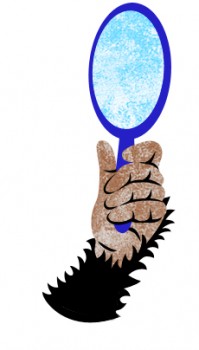
Illustration: Joonas väänänen
Columnist Jyrki Lehtola zooms in on the worst factor in the diminishing quality journalism: us. Our voice is now dominant in the media, and it isn’t a particularly pleasant one.
Have you heard the rumours about the crisis in the media yet? Or their search for a new revenue logic that consists of repeating the words ‘Internet’ and ‘money’? I’m sure you have, even though the media itself claims to be getting along fairly well and can always find some perspective on its dropping circulation numbers that tells everyone they’re doing just fine. (For example, their numbers are better than in 1898 when the paper didn’t exist. Yes, we rule!)
But that isn’t the only problem. The other problem exists in us, the readers, listeners and viewers. Social media, discussion boards, and the media itself have given us a voice, and, er, well, it isn’t the kind of voice anyone wants to hear.
It turned out we have an ugly voice, and we want all the wrong things. More…
Kidult culture
4 April 2012 | Non-fiction, Tales of a journalist
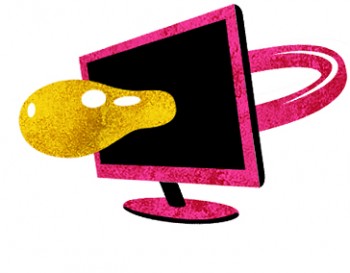
Illustration: Joonas Väänänen
Life is hard, and then you grow up. Except that you don’t really, at least if you keep watching television. Jyrki Lehtola takes a look at entertainment for the Peter Pan generation – which, he argues, is pretty much all of us
When did we start making television for children? I mean, in theory for adults (believe me, advertises, believe me: for adults!) but in practice for children?
Theoretically television is a wonderful, flexible medium less dependent on big money than the film business. Why did we let it slip out of our hands as a form of expression?
Why did we start making adult programmes for children and children’s programmes for adults? In other words, why do we make exactly the same TV programmes for everyone? More…
Noah’s progeny
30 October 2009 | Fiction, Prose
Extracts from the novel Puupää (‘Blockhead’, Teos, 2009)
In these ‘shavings’ hewn from the block in constructing the storyline of his new novel, Juha Hurme offers us four unique glimpses into the Finnish psyche
The rune singer of Nokia
Three years ago I purchased a used mobile phone when its predecessor took an overdose of sea water and went mute on a rowing trip in a broken-down loaner of a fibreglass boat in a gale-force nor’wester. This three-year-old phone has been a thoroughly satisfactory implement and indispensable contact link. The power button got stuck a year ago, but the gadget is still fully operational with the aid of a match stick or something similar. It is my belief and hope that it will continue to fulfil the role of telephone for seven more years, because I prefer not to own, let alone purchase, anything that withstands fewer than ten years of use. More…
Temporarily out of order
Extracts from the novel Hullu (‘The lunatic’, Teos, 2012). Introduction by Soila Lehtonen
I found myself standing in front of the noticeboard. The rules were on a sheet of paper:
Ward 15 5-C
MEAL TIMES:
Breakfast 8:00 AM
Lunch 11:45 AM
Dinner 4:30 PM
Evening Snack 7:30 PM
COFFEE:
After lunch
We recommend leaving money, valuables, and bankbooks for storage in the ward valuables locker. We take no responsibility for items not left in the locker! Money may be retrieved 1–3 times per day. Use of mobile phones on the ward by arrangement.
VISITING HOURS:
M–F 2–7 PM
Sa–Su 12–7 PM
PERSONAL CLOTHING:
Use of one’s own clothing by individual arrangement. Clothing care individual. Washer and dryer available for use in the evenings after 6 PM.
OUTDOOR RECREATION:
Arranged individually according to health condition. Outdoor pass does not include the right to leave the area.
VACATIONS:
Vacations arranged during morning report, according to health condition.
NOTA BENE!
Smoking is only allowed on the smoking balcony! Smoking prohibited from 11 PM to 6 AM.
Pastor Karvonen available by appointment.
These were impossibly difficult rules. I read them through three times and simply did not understand. ‘Clothing care individual.’ ‘Outdoor pass does not include the right to leave the area.’
What did these sentences mean? With whom did you schedule the pastor and how? And why? More…
Encounters with a language
12 December 2014 | Articles, Non-fiction
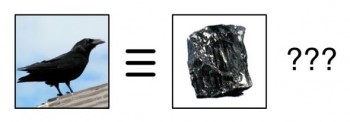
Mistranslation: illustration by Sminthopsis84/Wikimedia

